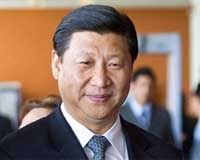 |
Washington (AFP) May 13, 2010 The United States and China were Friday holding talks on human rights for the first time in two years, with a feud brewing over US support for efforts to crack through China's Internet firewall. Senior officials on Thursday opened the two-day talks, which offer the Obama administration a chance to show it also cares about human rights as it seeks a wide-ranging partnership with China on issues from the economy to North Korea. State Department spokesman Philip Crowley said the United States will raise the "rule of law, religious freedom, freedom of expression, labor rights and other human rights issues of concern." "We are fully committed to promoting human rights everywhere, including China, and look forward to candid and in-depth discussions," Crowley said. Ahead of the dialogue, the first since May 2008, the United States said it was considering funding the Global Internet Freedom Consortium, software run by the Falungong spiritual movement to circumvent Internet censorship. China strictly bans the Falungong, a Buddhist-inspired movement known for its spiritual exercises which has alarmed Beijing with its organizational clout. "We firmly oppose any government or organization providing support to anti-China forces in their anti-China activities," foreign ministry spokesman Ma Zhaoxu told reporters in Beijing. The US Congress approved 30 million dollars in the 2010 budget to combat cyber censorship in China, Iran and elsewhere. But the administration has hesitated at funding the Falungong software for fear of infuriating Beijing. Lawmakers have pressed for funding for the Global Internet Freedom Consortium, which also was used by Iranian opposition protesters after last year's election and nearly crashed due to full capacity. Internet freedom has entered the spotlight after Google said in January it would no longer cooperate with China's efforts to weed out web searches of sensitive topics. The Falungong -- which says thousands of its practitioners have been tortured to death since China banned the group in 1999 -- urged the United States to raise its case during the talks. But Levi Browde, executive director of Falun Dafa Information Center in New York, cautioned against the "exclusive use of private meetings" to raise human rights concerns with China. "They almost never yield any real progress, and certainly not in terms of Falungong." Human rights advocates have feared that the talks would let China relegate US concerns to a side dialogue, rather than making them an integral part of its relationship with the United States. Secretary of State Hillary Clinton alarmed activists after taking office when she said that human rights concerns would not "interfere" with US efforts to work with China. Clinton and Treasury Secretary Timothy Geithner are expected to head this month to China for talks. Clinton's deputy, James Steinberg, recently said that while she would raise human rights, the main topics would be the wobbly global economy, climate change and hot spots such as Iran and North Korea. Richard Armitage, who served as deputy secretary of state under former president George W. Bush, voiced concern that the United States was on the "wrong foot" with China on human rights. "To give China a break on human freedoms is going to feed the perception that China is inevitably the coming power and we're fearful of standing up for those things that we traditionally stood up for," Armitage said. The rights talks also come after China's top AIDS activist, Wan Yanhai, fled China for the United States after voicing fears for his safety. A former health ministry official, Wan helped uncover a major tainted blood-selling scandal in the 1990s and led an AIDS awareness campaign. Wan told AFP he hoped the rights talks would "focus on how to get China's civil society out of its current predicament and resolve the problems of social transparency, civil organization and Internet freedom."
Share This Article With Planet Earth
Related Links China News from SinoDaily.com
 Cut the political jargon, urges China's vice president
Cut the political jargon, urges China's vice presidentBeijing (AFP) May 13, 2010 The "three represents" could some day be lumped in with "the four olds" if China's jargon-obsessed Communist Party heeds a call from the top for clearer communication. Xi Jinping, the vice president and heir apparent to China's leadership, made the plea in a speech to Communist cadres, saying that jargon walled the ruling party off from the country's more plain-spoken citizens. Xi gave n ... read more |
|
| The content herein, unless otherwise known to be public domain, are Copyright 1995-2010 - SpaceDaily. AFP and UPI Wire Stories are copyright Agence France-Presse and United Press International. ESA Portal Reports are copyright European Space Agency. All NASA sourced material is public domain. Additional copyrights may apply in whole or part to other bona fide parties. Advertising does not imply endorsement,agreement or approval of any opinions, statements or information provided by SpaceDaily on any Web page published or hosted by SpaceDaily. Privacy Statement |